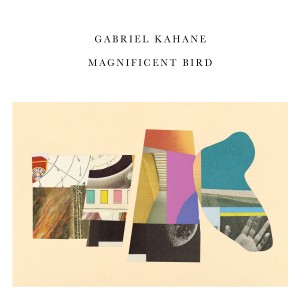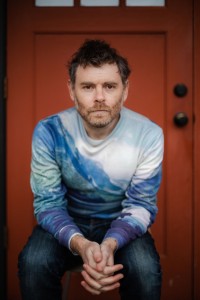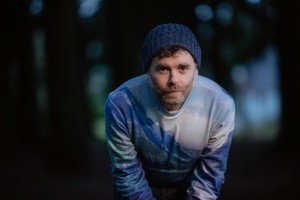
Artist
IMAGES: To download, click above. Photo credit to Jason Quigley.
LINKS:
Nonesuch Records
Bandcamp
Website
Gabriel Kahane
Nonesuch
Over the last dozen years, Gabriel Kahane has often approached his work from the vantage point of an observer. He’s written songs about historical figures, action movie villains, and any number of buildings (c.f. 2014’s The Ambassador, which received an acclaimed staging at BAM). He’s set celebrity tweets to music—including Mitt Romney’s paean to the humble hot dog—and tackled inequality through the lens of housing issues, resulting in 2018’s emergency shelter intake form, commissioned and premiered by the Oregon Symphony, where Kahane serves as Creative Chair. But now, for the first time since 2011’s Where are the Arms, he’s telling his own story.
With Magnificent Bird, his second album for Nonesuch, Kahane brings to life a trunk of songs written in self-imposed isolation—a full year off the internet—with the help of a dozen colleagues whose long-distance contributions were made possible, paradoxically, through the very technology he had shunned.
In October 2020—the final month of his digital hiatus, and a resolutely chaotic period in the United States—he set out to write a song every day. “I wanted to create something like an aural brain scan at the end of this experiment,” he explains, “and to give myself permission to write about small things, rather than trying to distill the enormity of the moment into grand statements.”
Not only that: Kahane’s daily practice, with its attendant stream-of-consciousness, gives us a window into a mercurial mind associating freely.
At the bottom of your mug
is a map of Ohio;
At the bottom of your heart
is a map of your dread.
With these lines, from side A closer “Chemex,” a cathedral built out of synthesizers and a one-man choir, Kahane announces his theme: the marriage of the mundane to the increasingly quotidian terror that accompanies life in a wounded country, and, moreover, on a planet in the throes of catastrophic climate change. As songs like “We Are the Saints” and “Hot Pink Raingear” demonstrate, Magnificent Bird is suffused with impressions of the physical world. But the narrative is just as often internal, a landscape of the mind. Here is Kahane analyzing apocalyptic dreams (“Die Traumdeutung”), now confronting professional jealousy (“Magnificent Bird”), and there, interrogating—and yet indulging!—nostalgia (the elegiac anthem “To Be American,” with an all-star backing band featuring Andrew Bird, Caroline Shaw, Chris Thile, Punch Brothers bassist Paul Kowert, and percussionist Ted Poor).
Despite having written two-and-a-half dozen songs, Kahane chose just ten for the album. Its tight construction makes its themes throb in technicolor: wildfires, recurring dreams, a shadowy “emperor” (is that a Silicon Valley tech bro?) all float in and out of the frame. Indeed, the album’s brevity somehow enhances its urgency and power, like a carefully considered letter to an old friend. And, like such letters, the album is also, for Kahane, a return to the confessional mode.
“I wanted to make something spare,” he explains, “something that reflected the hermetic experience I’d just had. But I was also having this impulse, after being isolated for so long, to reconnect with my people. Everyone who plays on this album is someone I love as a person as much as I do as a musician. The truth is, I just wanted an excuse to get in touch with my friends.
And so we return to that initial paradox: all of this was made possible online, even as Kahane is unabashed in his criticism of our digital age. “There’s this fallacy,” he argues, “of technological inevitability, of techno-fatalism. And so we adopt these technologies without asking whether they improve our lives, without asking whose interests they serve. My internet hiatus grew out of a belief that our devices reinforce the fiction that convenience and efficiency have intrinsic value. And that has implications with respect to climate crisis, to inequality, to our (in)ability to see ourselves in each other, to build the kinds of coalitions necessary to make a more just world. I wanted to leave it all behind not as a further expression of techno-pessimism, but in search of a positive alternative.
“In that sense, I think this record relates to Book of Travelers,” he muses, referring to his 2018 Nonesuch debut, which chronicled a thirteen day, off-the-grid, 8,980-mile railway journey in the aftermath of the 2016 presidential election. “I wanted unmediated interaction with strangers, so I took that trip without my phone. Somewhere in New Mexico, I remember thinking, ‘Wow, this is really transformative. I should do this for more than thirteen days.’ And then a few years later, I began this much longer experiment, not knowing, of course, that four months into it, the pandemic would hit.
“But,” he says, bringing it back to the long-distance recording of his new album, “I knew when I began my year offline that my retreat wasn’t a wholesale rejection of digital spaces. It was, you might say, an elimination diet. It turns out I am a much happier person without a smartphone.” (Two years later, his remains in a desk drawer.) “At the same time, I am grateful for the technology that enabled me to make this record, to reconnect with so many friends and colleagues I love so dearly.
The collaborators who appear on Magnificent Bird—a list that also includes electro-pop star Amelia Meath (of Sylvan Esso and label mates Mountain Man); composer/performers Nathalie Joachim and Pekka Kuusisto; the celebrated clarinetist Anthony McGill; avant-folk stalwarts Sam Amidon and Holcombe Waller; longtime colleagues Gabriel Cabezas, Casey Foubert, Chris Morrissey, Alex Sopp, and Elizabeth Ziman; and mix engineer Joseph Lorge—reflect the breadth of Kahane’s vibrant musical world. “If nothing else,” he says, “this record is a pure expression of community.”




